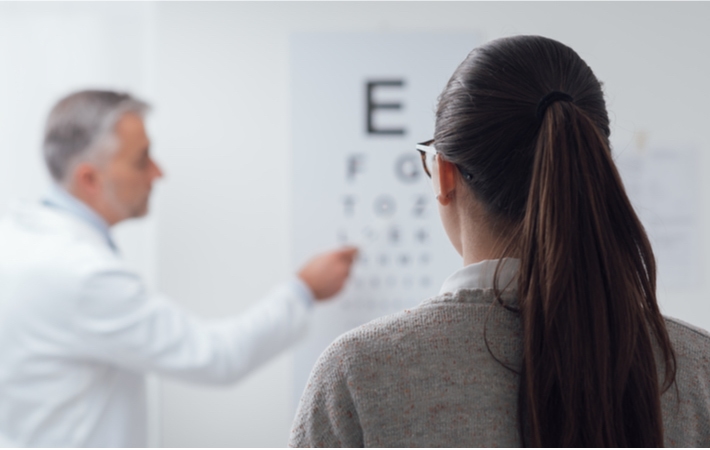Your glasses should provide clear, comfortable vision. If you’re experiencing blurry vision or discomfort, it may be time to reevaluate your prescription. According to the Canadian Association of Optometrists, prescription lenses are typically valid for 1-2 years, but it’s important to schedule an eye exam annually to ensure your prescription is up to date. But how can you tell if your current glasses prescription is no longer right for you?
Continue reading to learn more about why your prescription may have changed and how to spot the signs that something’s off.
A Lot Goes into Making Your Glasses
While glasses are designed to help you see better, the process of creating the perfect pair is more complex than it seems. Your optometrist and optician carefully choose lenses and frames that match your unique needs, ensuring a proper fit for maximum comfort. However, your eyes can change over time, and this may result in an incorrect prescription. A slight error or change in your vision can lead to discomfort or less-than-optimal vision.
Can Your Prescription Be Wrong?
Yes, your prescription can be wrong for several reasons, either due to human error or changes in your vision. Mistakes can happen during an eye exam, such as a misread prescription or a typo when entering information into a computer. However, if your prescription is incorrect, your optometrist can easily update it and help you see clearly again.
Why Do Prescriptions Change?
Prescription changes are typically the result of changes in your eyes. In children, eye prescriptions can change rapidly as their eyes grow. For adults, changes occur more slowly, but they still happen over time.
As we age, many adults experience eye conditions like cataracts (clouding of the eye’s lens), which can cause blurry vision due to the inability of light to pass through effectively. Another common age-related condition is presbyopia, where the lens of the eye loses flexibility, making it harder to focus on close-up objects—hence the need for reading glasses or multifocal lenses.
Aging can also cause the muscles in your eyes to weaken and the pupils to shrink, which can make it harder to see at night and adjust to light changes.

How Can You Tell If Your Prescription is Wrong?
An incorrect prescription can be more than just an inconvenience—it can cause discomfort and strain on your eyes. If your lenses aren’t right for you, you may experience several symptoms:
- Eyestrain
- Headaches
- Neck pain
- Dizziness
- Double vision
- Burning or itchy eyes
If you’re struggling to see clearly even after giving your new lenses some time to adjust, it may indicate an issue with your prescription.
Can an Incorrect Prescription Damage Your Eyes?
While symptoms like eyestrain or headaches may affect your quality of life, an incorrect prescription won’t cause long-term damage to your eyes. However, the strain caused by your eyes working harder to see can lead to discomfort and irritation. If you notice your vision isn’t improving, it’s time for an eye exam.
How an Eye Exam Can Help
A comprehensive eye exam does more than check your vision. Your optometrist will conduct various tests to evaluate the overall health of your eyes. This includes detecting common conditions such as:
If your prescription is off, your optometrist will perform a refraction test to determine the lenses you need. They will also assess for any underlying conditions that may be affecting your vision, helping you get the most accurate prescription.
Regular Eye Exams to Keep Your Vision in Check
How often should you visit your optometrist? For adults under 64, eye exams every 1-2 years is recommended. For seniors, annual exams are crucial. If you have specific conditions affecting your eyes, you may need more frequent check-ups.
Enjoy Clear Vision
Whether your prescription is incorrect due to natural changes in your eyes or a simple mistake, you deserve to see clearly and comfortably. Schedule an eye exam to get the correct prescription and ensure your eye health is taken care of.
If you’re having trouble with your prescription or need your eyes looked at, book an appointment.





